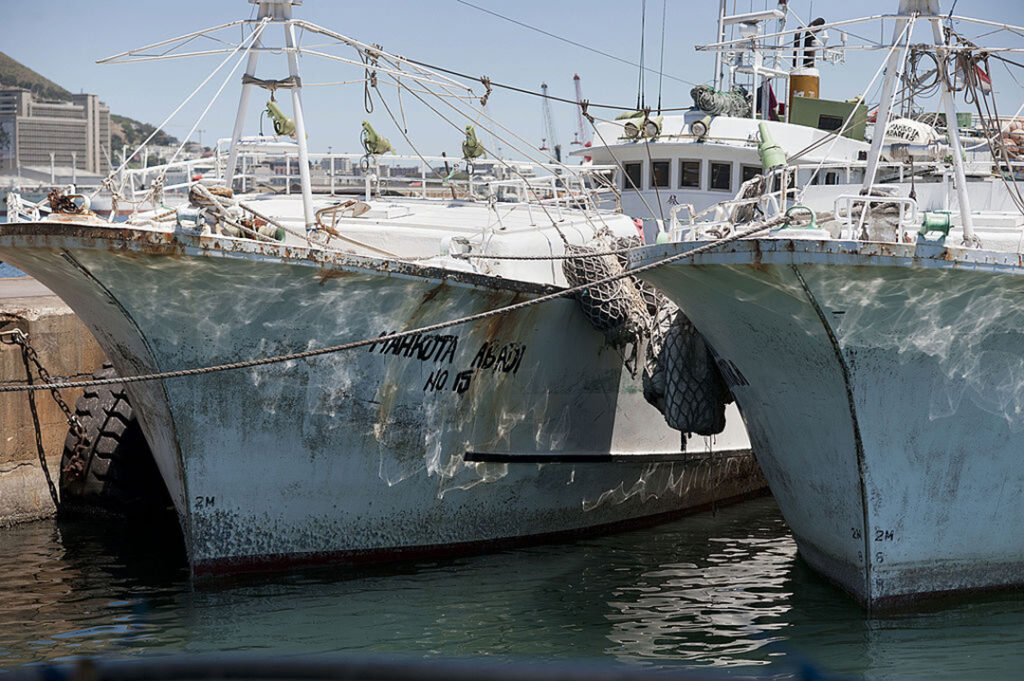ADF STAFF
At least 26 coastal African nations are known to have recently operated open vessel registries or allowed foreign-owned fishing vessels to use various flag schemes to fish in in their waters.
This policy lets foreign trawlers collect large quantities of fish with little oversight or repercussions if they violate the law. Advocates are calling for nations to reform and strengthen their flag and registry rules.
An April report by Trygg Mat Tracking (TMT) and I.R. Consilium revealed that vessels engaged in illegal fishing commonly fly “flags of convenience.” This lets them use open vessel registries to fish in the open sea where coastal nations do not have jurisdiction. Fishing boats also are commonly “flagging in,” meaning they use and abuse local rules to flag a foreign-owned and operated fishing vessel into an African registry and fish in local waters.
There is little oversight of open registries, which are online. This means that a fishing company in China can register to fish in Nigeria and pay the registration fee electronically.
“As a practical matter, it is less likely to get targeted and interdicted for fishing without a license or with improper gear in Nigeria if it is Nigerian flagged,” Ian Ralby a maritime security expert and chief executive officer of I.R. Consilium, told ADF in an email. “Similarly, it is less likely to get targeted and interdicted for fishing without a license or with improper gear in another state of the region if it is flagged in Nigeria, as there is a deference to regional states.”
Because companies outside Africa manage and maintain many African flag state vessel registries, there may be few — or no — African authorities involved in management. Thus, many nations using open vessel registries “are not exercising their responsibilities with regard to controlling the fishing vessels that fly their flag,” according to the report.
These issues allow foreign fishing companies, mostly Chinese, to exploit their flags to fish unsustainably and illegally without punishment, unless they are caught in the act. China is the world’s worst illegal, unreported and unregulated (IUU) fishing offender, according to the IUU Fishing Index.
Chinese vessels have targeted African waters for decades, resulting in severely depleted fish stocks, heightened food insecurity and loss of income for local artisanal fishermen and others who make their living from fisheries.
Vessels that exploit a nation’s flag also are known to frequently change their names, making them harder to track. The Labiko 2, for example, was cited by the North-East Atlantic Fisheries Commission as an IUU fishing violator in 2007 under the name Maine and flagged to Guinea.
The Labiko 2 was detained in Liberia in 2017 for using prohibited gear and targeting demersal sharks, a violation of its licensing conditions. The trawler reportedly was sold and is now flagged to Liberia, although its beneficial owner is not known, according to the report.
The TMT-I.R. Consilium report offers several suggestions to strengthen vessel registration processes, including: closing open vessel registries; ensuring that an inter-agency approach is taken on all fishing vessel flagging decisions; establishing due diligence in overseeing all flagging applications; de-flagging IUU fishing violators; and strengthening oversight of private companies that use open vessel registries.
“Ensuring that high-risk fishing operators and vessels cannot enter a flag registry or fishing grounds is one of the simplest and cost-effective steps that any nation can take to reduce the risk of illegal fishing, unsustainable fishing practices and reputational damage,” Duncan Copeland, executive director of TMT, said in a news release.

